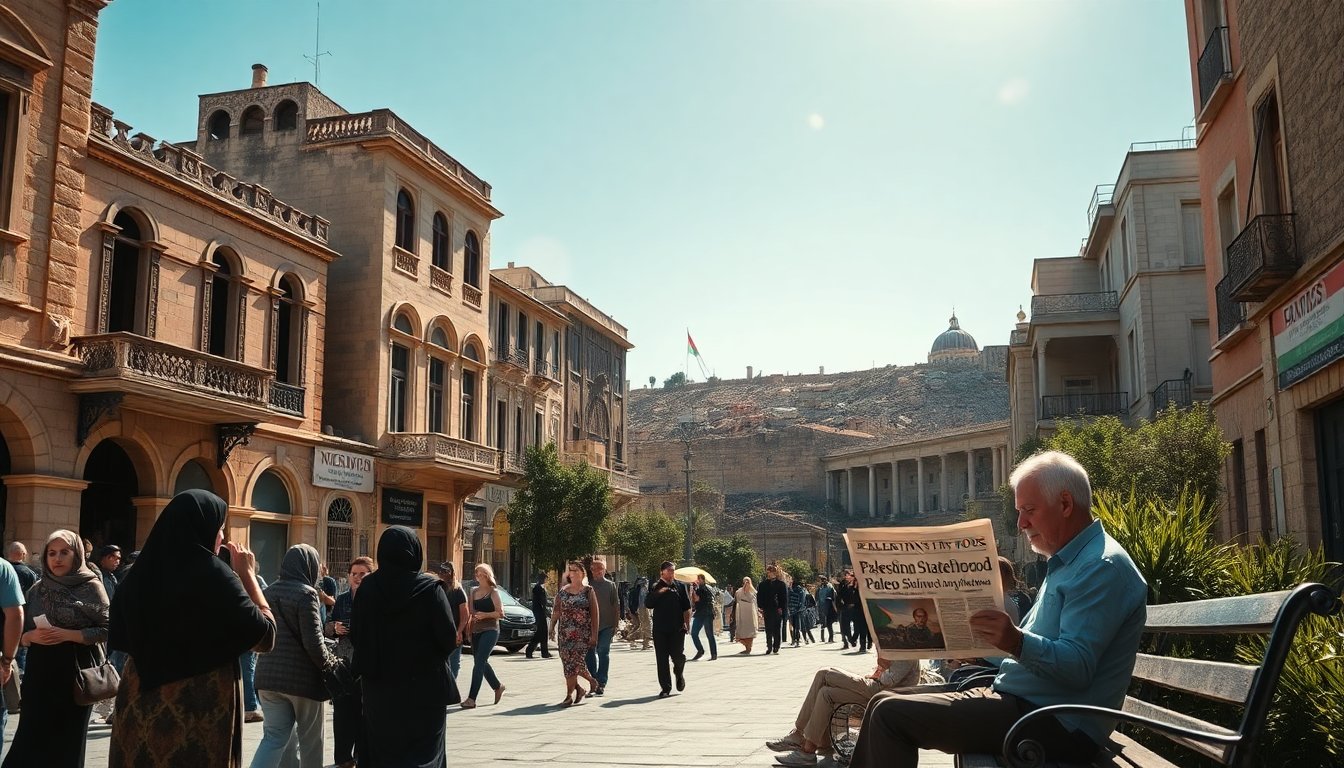Table of Contents
In the complex landscape of Middle Eastern politics, the quest for Palestinian statehood remains a contentious issue. Despite sporadic recognition from various Western nations, the Palestinian Authority continues to grapple with its status as a de facto government of a non-existent state. This situation is compounded by Israel’s ongoing military actions in Gaza, which have not been significantly impacted by international sentiments.
Countries such as Australia, Britain, Canada, and France have acknowledged the Palestinian Authority, yet their recognition comes with numerous stipulations. This conditional support fails to create a substantial movement that could compel Israel’s key allies, particularly the United States, to reconsider their unwavering support for Israel amidst its military operations.
Global responses to the Gaza conflict
The recent escalation of violence in Gaza has drawn the attention of international celebrities and public figures, who have voiced their disapproval of Israel’s actions. Notable figures from Hollywood, including Emma Stone, Joaquin Phoenix, and George Clooney, have joined forces in a boycott against projects funded by Israeli money. This cultural pushback reflects a growing discontent with the current state of affairs.
Concerts and fundraising initiatives
Additionally, artists like Damon Albarn, Neneh Cherry, and the band Bastille recently participated in a concert in London that raised an impressive £1.5 million (approximately US$2 million) for the beleaguered population of Gaza. Such initiatives reveal a burgeoning solidarity within the arts community aimed at supporting humanitarian efforts in the region.
Moreover, several European state broadcasters have threatened to boycott the upcoming Eurovision song contest should Israel decide to participate. These actions illustrate the mounting pressure on cultural platforms to take a stand against perceived injustices.
The role of sports and international organizations
Sports organizations are not immune to this discourse either. European football’s governing body, Uefa, is facing calls from prominent figures, including former France and Manchester United striker Eric Cantona, to exclude Israel from international competitions. This demand underscores the intersection of sports and politics, highlighting how global figures are leveraging their platforms to advocate for change.
Challenges in achieving critical mass
However, despite these various movements, there remains a significant gap between public sentiment and political action. The collective efforts of celebrities, artists, and sports icons have not yet culminated in a “critical mass” strong enough to influence the decisions of Israel’s major allies. The ongoing conflict and Israel’s relentless pursuit of Hamas—the group responsible for the tragic events of October 7, which claimed the lives of 1,200 individuals—further complicate the landscape.
Experts like Kenneth Katzman, a senior Middle East fellow at the Soufan Centre, assert that the current international response, while vocal, lacks the necessary weight to alter the course of Israel’s actions. The steadfast support from the United States, in particular, remains a significant factor that shields Israel from substantial international repercussions.
The path forward for Palestinian statehood
As the Palestinian Authority continues to seek recognition on the world stage, the combination of conditional support and the ongoing violence in Gaza presents formidable challenges. The international community’s mixed responses, while indicative of a shift in public perception, have not yet translated into effective political pressure that could lead to meaningful change.
The quest for Palestinian statehood is intricately tied to global political dynamics. The actions of celebrities, artists, and sports figures reflect a growing awareness of the situation, yet the absence of a unified and decisive international response indicates that significant obstacles remain. As the situation evolves, the potential for change hinges on the ability to mobilize a broad coalition of support that transcends mere acknowledgment and translates into substantive political action.


